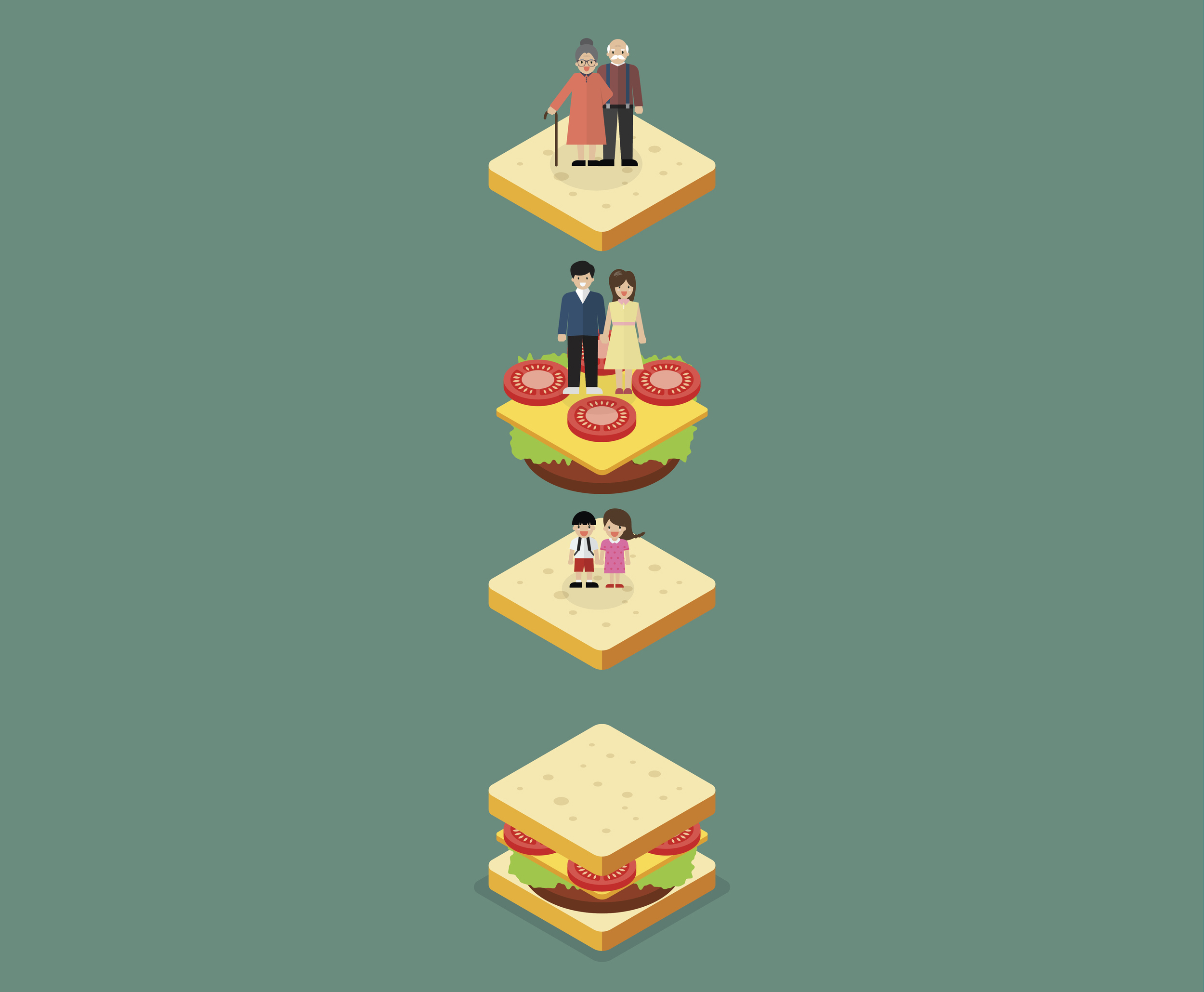The sandwich generation – adults who are simultaneously caring for children or grandchildren and their aging parents, has been squeezed tighter over recent years as the elderly live longer and the high cost of living draws grown kids back to the nest. According to a recent Washington Post report, overall life expectancy increased by 2.3 percent between 2000 and 2019, and in July 2022, half of adults aged 18 to 29 were living with one or both of their parents. The sandwich middle-aged adults find themselves in is a multi-layered one – and “panini generation” caregivers are feeling the pressure.
The physical, financial, and emotional burdens of caring for aging parents, especially when dementia is involved, can take a toll on the health and well-being of adult children. Many family caregivers are still working themselves, and also help their grown children financially, or with child care for grandchildren whether or not they share a household. The impact of this lengthening period of taking care of older and younger generations often leaves middle-aged adults burned out, with little time for themselves.
With small children and elderly parents in the daily caregiving mix, it often feels like each day presents a new fire to extinguish. Younger adult children often still need financial guidance and emotional support as they navigate a complex world thrown off-kilter by the recent pandemic. And the empty nest is often not as empty as anticipated, limiting the freedom many middle-aged adults can enjoy.
Caregiving support is lacking across the United States and Canada where many families have to piece together help from family, faith groups and community aging agencies. In smaller and rural communities, finding respite care becomes even more challenging, and despite the efforts of many groups to demand funding for caregiver support, the future is uncertain. Sandwiched parents also worry about their own old age and the soaring cost of elder care.
Learn more about building a strong caregiver support network, coping with stress, setting aside time for yourself, and accessing community and government resources by following this link to Caring Bridge.






Add Your Voice
0 Comments
Join the Discussion